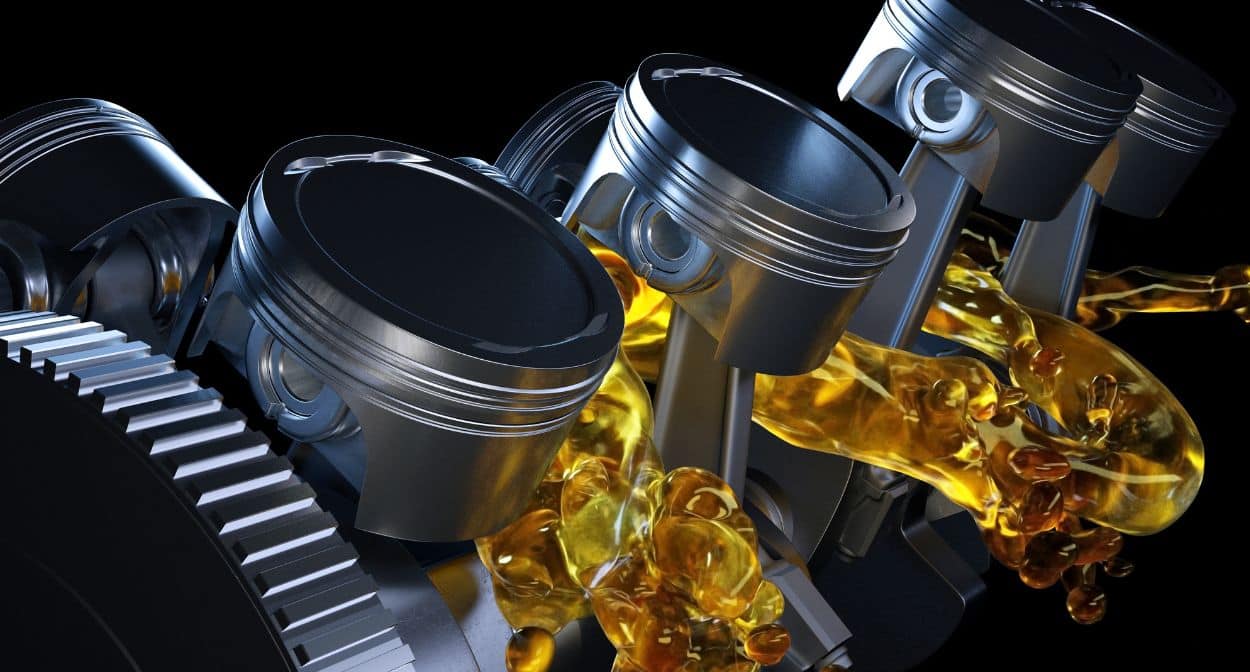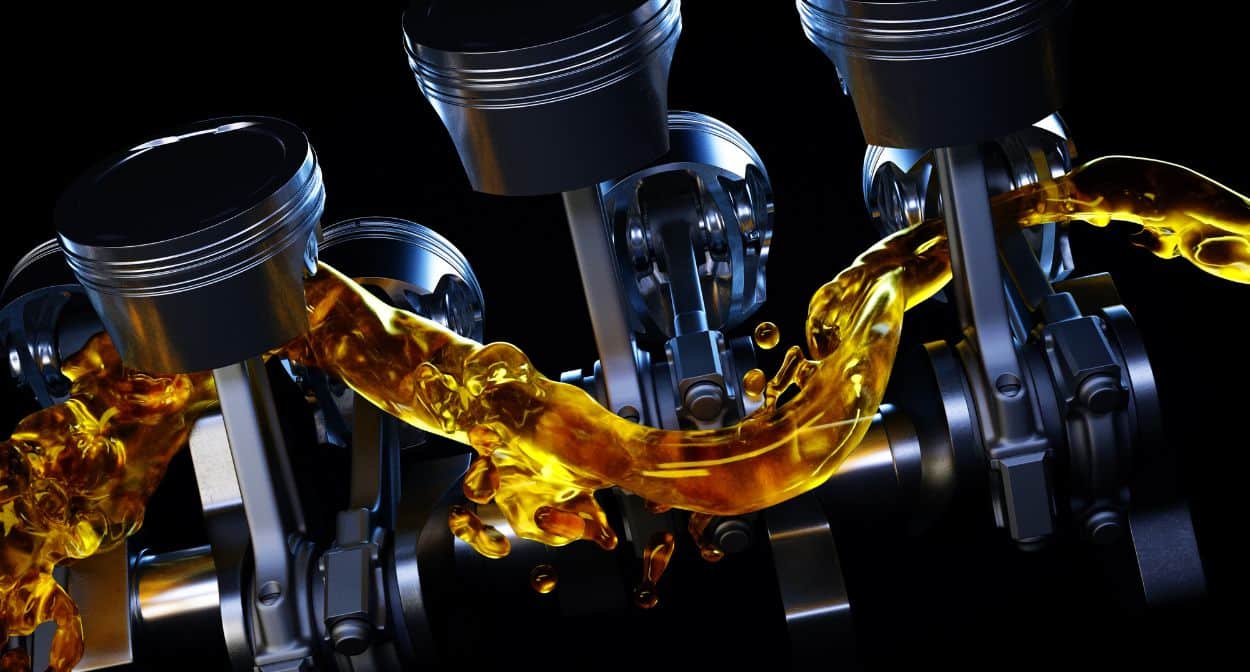Introduction
Engine oil is often referred to as the lifeblood of a vehicle, and for good reason. It’s essential for maintaining the health and performance of your car’s engine.
For owners of European cars, understanding the specifics of engine oil formulations can be particularly important.
European engines are known for their precision engineering and high performance, which means they have unique lubrication needs.
Delve Into The Science Behind Engine Oils
We’ll explore how modern formulations are designed to protect and enhance the performance of European car engines.
Whether you drive a BMW, Mercedes-Benz, Audi, or another European import, this guide will help you understand why choosing the right engine oil is crucial for your vehicle’s longevity and efficiency.

The Basics of Engine Oil
Engine oil serves multiple critical functions within an engine, making it one of the most important fluids in your vehicle. Here are the primary roles it plays:
Lubrication: The main function of engine oil is to lubricate the moving parts of the engine, reducing friction and preventing wear and tear. This ensures that the engine runs smoothly and efficiently.
Cooling: Engine oil helps dissipate heat generated by the engine. As it circulates, it absorbs heat from the engine components and carries it away, preventing overheating.
Cleaning: Over time, engines accumulate dirt, debris, and combustion by-products. Engine oil contains detergents and dispersants that help clean these contaminants from the engine, keeping it clean and running effectively.
Protection against wear and corrosion: Engine oil forms a protective barrier on metal surfaces, preventing metal-to-metal contact and reducing wear. Additionally, it contains additives that prevent rust and corrosion.
Types of Engine Oils:
- Conventional Oil: Made from refined crude oil, conventional oil is the most basic type of engine oil. It is suitable for older vehicles or engines with simple designs but may not offer the best performance in modern, high-performance engines.
- Synthetic Oil: This is chemically engineered to provide superior performance and protection. Synthetic oils offer better viscosity stability, improved resistance to thermal breakdown, and enhanced protection against wear and deposits.
- Blended Oil: A combination of conventional and synthetic oils, blended oils offer a balance of improved performance and cost-effectiveness. They provide better protection than conventional oils but at a lower price than full synthetics.
Understanding these basics is crucial for making informed decisions about engine oil for your European car.

Understanding Oil Formulations
To truly appreciate how modern engine oils protect and enhance the performance of European car engines, it’s important to understand their formulations. Engine oil formulations consist of two main components: base oils and additives.
Base Oils:
Base oils make up the majority of the engine oil and serve as the primary lubricant. There are three main types of base oils:
Mineral Oils:
Derived from crude oil, mineral oils are the most basic type and are typically used in conventional oils. They offer adequate performance but may not provide the best protection under extreme conditions.
Synthetic Oils:
These are chemically engineered to provide superior lubrication and performance. Synthetic oils are designed to withstand high temperatures and pressures, making them ideal for modern, high-performance engines.
Hydrocracked Oils:
These are a type of highly refined mineral oil that offers performance characteristics closer to synthetic oils. They provide improved stability and performance compared to conventional mineral oils.
Additives:
Additives are chemicals added to the base oil to enhance its properties and provide additional protection. Common additives include:
Detergents:
Keep the engine clean by preventing the formation of deposits and sludge.
Dispersants: Help suspend and remove contaminants, keeping them from clumping together and forming sludge.
Anti-Wear Agents:
Form a protective layer on metal surfaces to reduce wear and extend engine life.
Viscosity Modifiers:
Help maintain the oil’s viscosity across a range of temperatures, ensuring consistent performance in both hot and cold conditions.
The Role of Viscosity and Oil Grades:
Viscosity refers to the oil’s thickness and its ability to flow at different temperatures. It’s a crucial factor in engine oil performance.
Oil grades, such as 5W-30 or 10W-40, indicate the oil’s viscosity characteristics.
The first number (e.g., 5W) represents the oil’s viscosity in cold temperatures, while the second number (e.g., 30) indicates its viscosity at high temperatures.
Choosing the right viscosity is essential for protecting your engine.
European cars, with their precision-engineered engines, often have specific viscosity requirements to ensure optimal performance and protection.

Modern Formulations: Enhancing Performance and Protection
Modern engine oils are formulated with advanced technologies to meet the demanding requirements of European car engines.
These formulations are designed not only to protect the engine but also to enhance its performance, ensuring that it operates at its best under various conditions.
Advanced Additive Technologies:
- Anti-Friction Agents: These additives reduce internal friction within the engine, improving efficiency and performance. By minimizing friction, these agents help the engine run smoother and reduce wear on critical components.
- Seal Conditioners: These additives help maintain the pliability and effectiveness of engine seals, preventing leaks and ensuring that the engine remains well-lubricated.
- High-Temperature Stabilizers: These additives enhance the oil’s ability to withstand high temperatures without breaking down. This is particularly important for turbocharged engines, which generate more heat.
Formulations for Turbocharged and High-Performance Engines:
Modern European cars often come equipped with turbocharged or high-performance engines that require specialized oil formulations. These engines operate at higher temperatures and pressures, making them more susceptible to wear and deposits. Advanced formulations for these engines typically include:
- Enhanced Detergents and Dispersants: To keep the engine clean and free of harmful deposits.
- Improved Anti-Wear Agents: To provide extra protection against the increased wear that high-performance engines can experience.
- Superior Viscosity Modifiers: To ensure consistent performance across a wide range of operating conditions.
Case Studies:
- BMW: BMW engines, particularly their high-performance M models, require oils that can handle high heat and stress. BMW-approved oils often contain specific additives that meet the brand’s stringent requirements.
- Mercedes-Benz: Known for their luxury and performance, Mercedes-Benz engines benefit from synthetic oils that offer excellent protection and stability, especially for their AMG performance models.
- Audi: Audi’s range of engines, from their efficient TFSI models to their high-output RS variants, require oils that provide both high temperature stability and excellent detergency to keep the engines running smoothly.
These advanced formulations help ensure that European engines operate efficiently, remain clean, and are protected against wear and tear, thus prolonging the life of the vehicle and maintaining peak performance.

Benefits of Using Modern Engine Oils in European Imports
Using modern engine oils in your European car offers a range of benefits that go beyond basic lubrication.
These advanced oils are formulated to provide enhanced protection and performance, which can lead to significant improvements in your vehicle’s operation and longevity.
Improved Fuel Efficiency:
Modern engine oils are designed to reduce internal friction within the engine, which can improve fuel efficiency.
By allowing the engine to operate more smoothly and with less resistance, these oils help maximize the miles per gallon (MPG) your car can achieve.
This is particularly beneficial for European cars, which are known for their performance and efficiency.
Enhanced Engine Longevity and Reliability:
The advanced additives in modern engine oils, such as anti-wear agents and high-temperature stabilizers, play a crucial role in protecting engine components from wear and damage.
This protection is especially important for European engines, which often feature complex and high-precision parts.
By reducing wear and preventing deposits, modern oils help ensure that your engine runs reliably for many years.
Reduced Emissions and Environmental Impact:
High-quality engine oils can also contribute to lower emissions.
By improving combustion efficiency and reducing oil consumption, these oils help minimize the release of harmful pollutants into the environment.
Additionally, some modern formulations are designed to be more environmentally friendly, incorporating biodegradable components and producing fewer harmful by-products.
Better Performance Under Extreme Conditions:
European cars are often driven in a variety of conditions, from city traffic to high-speed highway driving.
Modern engine oils are formulated to perform well under extreme conditions, such as high temperatures and heavy loads.
Whether you’re driving in hot weather or pushing your car to its limits on a long trip, these oils provide the stability and protection needed to keep your engine running smoothly.
Overall, the use of modern engine oils in European imports ensures that your vehicle operates at its best, providing you with a smoother, more efficient, and more reliable driving experience.

Choosing the Right Oil for Your European Car
Selecting the right engine oil for your European car is essential for maintaining its performance and longevity. Here are some tips and considerations to help you make an informed decision:
Follow Manufacturer Recommendations:
The best place to start is your vehicle’s owner’s manual.
European car manufacturers, such as BMW, Mercedes-Benz, and Audi, provide specific recommendations for oil types and grades based on the engine’s design and performance requirements. Following these guidelines ensures that you are using an oil that meets the necessary standards and specifications for your car.
Consider the Oil Grade:
As discussed earlier, oil grades (e.g., 5W-30, 10W-40) indicate the oil’s viscosity characteristics. Choosing the right grade is crucial for ensuring optimal engine protection and performance. Factors to consider include:
- Climate: Thinner oils (lower viscosity) are better for cold climates as they flow more easily at low temperatures. Thicker oils (higher viscosity) are suitable for hot climates, providing better protection at high temperatures.
- Driving Conditions: If you frequently drive in stop-and-go traffic, tow heavy loads, or drive in extreme conditions, you may need an oil with a higher viscosity or one that includes specific additives to handle these stresses.
Opt for Synthetic or High-Performance Oils:
Modern synthetic oils offer superior protection and performance compared to conventional oils. They are designed to withstand higher temperatures, reduce friction, and resist breakdown over time.
High-performance synthetic oils are particularly beneficial for high-performance European cars, such as sports cars and turbocharged engines.
Look for Approved and Certified Oils:
Many European car manufacturers have their own oil certification standards, such as BMW’s Longlife or Mercedes-Benz’s MB Approval.
Using oils that meet these certifications ensures compatibility and optimal performance for your vehicle.
Additionally, look for industry-standard certifications, such as API (American Petroleum Institute) and ACEA (European Automobile Manufacturers Association).
GT Imports’ Recommendations:
At GT Imports, we specialize in servicing European cars and understand the unique needs of these vehicles.
We recommend using high-quality synthetic oils that meet or exceed manufacturer specifications.
Our team can provide personalized recommendations based on your specific vehicle and driving habits.
Whether you drive a daily commuter or a high-performance sports car, we have the expertise to help you choose the best oil for your needs.
By choosing the right engine oil, you can ensure that your European car remains in peak condition, delivering the performance and reliability you expect.
Conclusion
In summary, the science behind modern engine oils plays a crucial role in protecting and enhancing the performance of European car engines.
Understanding the various aspects of engine oil—from its basic functions and types to the advanced formulations used in high-performance oils—can help you make informed decisions about the maintenance of your vehicle.
Using high-quality, modern engine oils offers numerous benefits, including improved fuel efficiency, enhanced engine longevity, reduced emissions, and better performance under extreme conditions.
By choosing the right oil for your European car, following manufacturer recommendations, and opting for oils with advanced additive technologies, you can ensure that your vehicle operates at its best.
At GT Imports, we are dedicated to providing top-notch service and expert advice to European car owners.
Whether you need an oil change, routine maintenance, or a detailed consultation on the best products for your car, our team is here to help.
Book An Appointment with GT Imports Automotive Repair
Schedule an oil change or consultation with GT Imports today to experience the benefits of modern engine oils firsthand.
Trust our expertise to keep your European car running smoothly and efficiently for years to come.
Would you like any changes to the conclusion, or do you have any additional sections or elements you would like to add to the blog post?
CALL FOR SERVICE:
Se Habla Español


